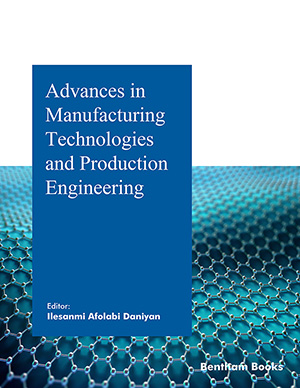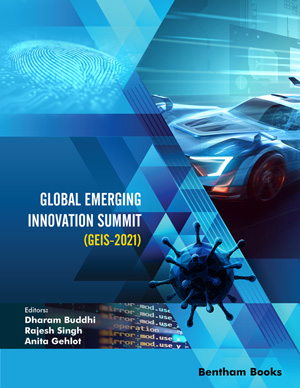Abstract
Background: The optimal control strategy has been widely used in electro-hydraulic position servo systems to achieve high-precision position tracking. However, the difficulty of selecting the weighted matrices in optimal control often leads to poor tracking accuracy.
Objective: This patent proposes an optimal control strategy using a genetic algorithm to improve the tracking accuracy of the electro-hydraulic servo system.
Methods: The patent first established the system state equation of the valve-controlled asymmetric cylinder. Secondly, based on linear quadratic optimal control theory and genetic algorithm, an optimal control strategy using a genetic algorithm was proposed. Finally, the simulation and experimental results showed that the designed controller has high position tracking accuracy.
Results: The optimal controller using a genetic algorithm was designed using Matlab/Simulink, and the effectiveness of the controller was verified through simulation. Additionally, experimental results showed that the proposed optimal control controller using a genetic algorithm had higher tracking accuracy than the proportional-integral-derivative controller and traditional backstepping controller for a given reference signal.
Conclusion: The control technology of the optimal controller using a genetic algorithm was found to be superior to proportional-integral-derivative and traditional backstepping controllers, and the tracking error of the linear quadratic regulator controller was reported to be relatively small. This demonstrated the effectiveness of the optimal control strategy using a genetic algorithm in this patent.
[http://dx.doi.org/10.1177/0954407020957766]
[http://dx.doi.org/10.2478/pomr-2020-0024]
[http://dx.doi.org/10.1115/OMAE2019-96080]
[http://dx.doi.org/10.1016/j.autcon.2015.12.024]
[http://dx.doi.org/10.1016/j.ymssp.2017.12.014]
[http://dx.doi.org/10.1016/j.jfranklin.2014.04.007]
[http://dx.doi.org/10.1016/j.mechatronics.2018.07.011]
[http://dx.doi.org/10.1115/FPMC2021-68923]
[http://dx.doi.org/10.1007/978-981-19-7946-0_2]
[http://dx.doi.org/10.1109/CCDC55256.2022.10034042]
[http://dx.doi.org/10.3390/s23042076] [PMID: 36850674]
[http://dx.doi.org/10.4028/www.scientific.net/AMM.672-674.1783]
[http://dx.doi.org/10.1016/j.apm.2019.03.002]
[http://dx.doi.org/10.4028/www.scientific.net/KEM.693.1752]
[http://dx.doi.org/10.1016/j.autcon.2021.103722]
[http://dx.doi.org/10.1016/j.apm.2019.10.062]
[http://dx.doi.org/10.3390/en13112876]
[http://dx.doi.org/10.1016/j.isatra.2015.09.014] [PMID: 26478475]
[http://dx.doi.org/10.21307/ijssis-2017-448]
[http://dx.doi.org/10.1115/IMECE2019-11505]
[http://dx.doi.org/10.5120/16322-5573]
[http://dx.doi.org/10.5772/56697]


















